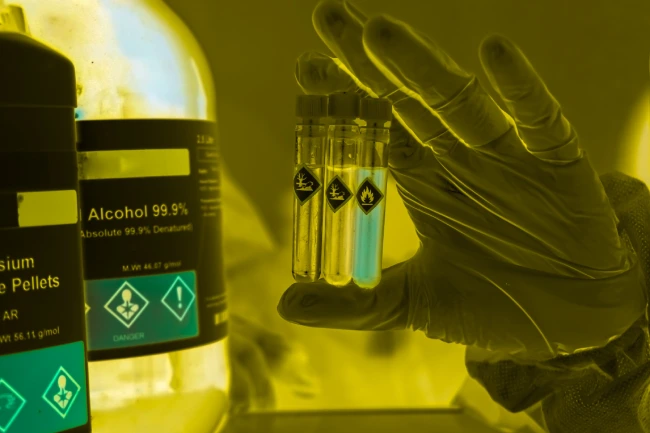Are PFAS the New PCBs? Understanding the Health Risks
PCBs (polychlorinated biphenyls) are a very well-known hazardous substance across the United States. PCBs came to the forefront of environmental policy when the EPA developed regulations under the Toxic Substances Control Act to control the use of PCBs. PFAS (Per- and Polyfluoroalkyl Substances) were once loosely regulated as scientists believed providing guidance on the allowable levels of PFAS in drinking water and groundwater would suffice. However, recent studies suggest that PFAS are accumulating in the environment and do not break down over time. As PFAS continue to accumulate, the overall health of humans and the environment are negatively impacted. These impacts are beginning to make PFAS as recognizable to the public as PCBs.
Due to the severe hazards of PFAS, in January of 2021, the EPA issued the latest results on the PFAS action plan. Significant progress has been made since the inception of this action plan and the agency ensures they will continue to build on this momentum. The regulations and concerns surrounding PFAS are growing. It is important to learn the regulations and to further gain an understanding of PFAS.What Are PFAS and Where Are They Located?
PFAS, which are a group of man-made chemicals, include Perfluorooctanoic acid (PFOA), Perfluorooctanesulfonic acid (PFOS), and other chemicals. PFAS are commonly found in fire-fighting foams, industrial sites, landfills, and wastewater treatment plants. PFAS were first invented in the 1930s mainly to create nonstick and waterproof coatings. Soon after, the development of PFAS began to increase and by the 1960s manufacturers created aqueous film-forming foam (AFFF).
AFFF is a foam mixture that rapidly extinguishes fires. This foam was created in response of the deadly fire aboard a U.S. Navy aircraft carrier “USS Forrestal.” AFFF was then installed on military ships, airplanes, and airports across the United States. Due to this drive in PFAS production, there are more than “3,000 synthetic chemicals” that are now classified as PFAS.
Common industries with PFAS usage and production:
- Coatings
- Aviation
- Construction
- Electronics
- Military
- Consumer Goods
Through the production and use of PFAS, many of these industries began seeking disposal outlets. Use of water treatment technologies has been the main disposal outlet for PFAS disposal. These once acceptable disposal methods have allowed PFAS in drinking water and groundwater. Today, we see how PFAS and these disposal outlets have had a harmful impact on humans and the environment.
Harmful Effects
People are now being exposed to higher levels of PFAS. Common routes of exposure are contaminated soil, drinking PFAS-contaminated water, eating fish caught from contaminated water, and eating food packaged in material containing PFAS.
Due to this exposure, PFAS have been found to cause adverse health outcomes in humans. These outcomes include negative effects on reproductive health, liver and kidney damage, and immunological effects. To prevent further health outcomes, proper disposal methods are now required by the EPA.
Tips for Proper Disposal
Triumvirate Environmental is a leader in this movement by establishing proper disposal methods for PFAS.
- Identifying PFAS Within Your Company: The first step is to research and locate where PFAS are in your company. Reference the most recent lists with the EPA and run proper sampling of these chemicals that are within your company.
- Finding the Right Disposal Facility: PFAS should be incinerated to prevent further PFAS contamination in soil and groundwater. Facilities will need to operate at a minimum temperature sufficient to destroy these compounds. Some resources of PFAS, such as AFFF, require specific retention time and temperatures to ensure appropriate disposal.
- Using the Correct Disposal Methods: Proper analytical should be run on the specific waste stream. Once analytical is executed, accurate classifications will need to be created and waste profiles approved. Standard Operating Procedures will need to be established to ensure that the overall disposal process does not create leakage or further PFAS contamination.
Contact Triumvirate Environmental
For help with disposal of PFAS-contaminated materials or other hazardous wastes, click the button below to contact us. Our experts are ready to assist and create proper waste management plans to help your company.




.png)

